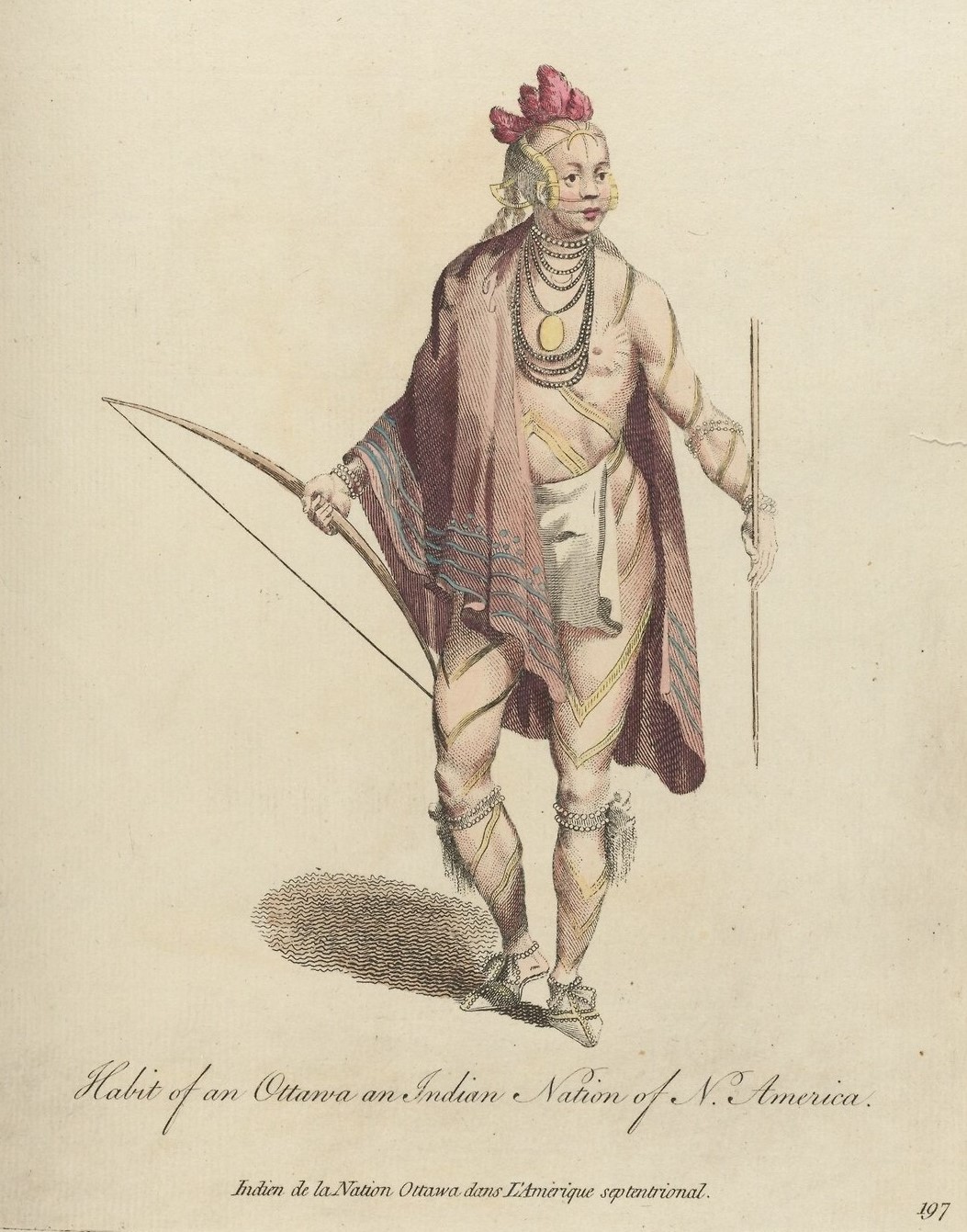From its earliest days, Fort Pitt was not only a military and economic center, but also a diplomatic one in the Ohio Country. Given the many broken treaties that punctuate subsequent American history, it is easy to view the past through the lens of inevitability. Yet, in the years when it stood at the Forks of the Ohio, Fort Pitt was the destination of scores of leaders who traveled great distances—whether from Indian Country or from colonial cities—in the cause of peace. They all carried with them the hopes of their people for the wellbeing of their settlements and the safety of their children, and each listened intently to the other’s words.
This fall, the season of many past treaties and councils at Fort Pitt, we remember their efforts in the cause of friendship between peoples. The words of the Ottawa Chief Shaganaba, delivered at the First Treaty of Pittsburgh in 1775, are emblematic of the intentions of the many diplomats who traveled to Fort Pitt in hopes of maintaining peace. Nicholas Cresswell, an observer to the treaty, noted in his journal that is was “one of the best speeches I ever heard from any man.”

Fathers: From the information of the people at Detroit with distrust I accepted your invitation, and measured my way to this Council fire with trembling feet. Your reception of me convinces me of this falsehood and the groundlessness of my fears. Truth and they have long been enemies. My Father and many of our Chiefs have lately tasted of Death. The remembrance of that misfortune almost unmans me, and fills my eyes with tears. Your kind condolence has lightened my Heart of its heavy burden, and shall be transmitted to my latest posterity.
Here he gave a string of White Wampum.
Fathers, I rejoice to hear this day what I have heard, and do assure you it shall be faithfully delivered to my Nation. Should you want to speak to me in future, I shall joyfully attend and now thank you for the present invitation. The particular favour shewed me and the Gun you have given me for the kindness I shewed your Brother, Young Fields, claim my warmest acknowledgements. I am conscious I did but my duty. He who barely does his duty merits no praise. If any of your people visit mine, whether curiosity or business be their motive, or if unwillingly compelled by the strong hand of the Victor, they shall find the same entertainment your Brother found. You inform me if my people visit yours they shall meet with an hospitable welcome. My fears are done away. I have not one doubt remaining. I will recommend it to my Young men to visit and get acquainted with yours. Fathers, what has passed this day is, too deeply engraved on my heart for time ever to erase. I foretell that the Sunny rays of this day’s peace shall warm and protect our Children’s Children from the storms of misfortune. To confirm it I give you my Right hand, that hand which never yet was given, but the heart consented, that never shed Human blood in peace or spared an enemy in War, and I assure you of my Friendship with a Tongue which never yet mocked at Truth, since I was of age to know that Falsehood was a crime.
Despite the best efforts of Shaganaba and others on both sides, the decades that followed were characterized by seemingly endless conflict and a string of broken promises by the Americans. Circumvented by wealthy—and often politically powerful—speculators, vengeful soldiers, and land-hungry settlers, the alternate path forward that these diplomats proposed eventually vanished. More than two centuries later, we can only wonder how history would have been different had their vision for peace been realized.
Source: Creswell, Nicholas, The Journal of Nicholas Cresswell, New York: The Dial Press, 1924, pp. 118-119.
Mike Burke is the Assistant Director of the Fort Pitt Museum.